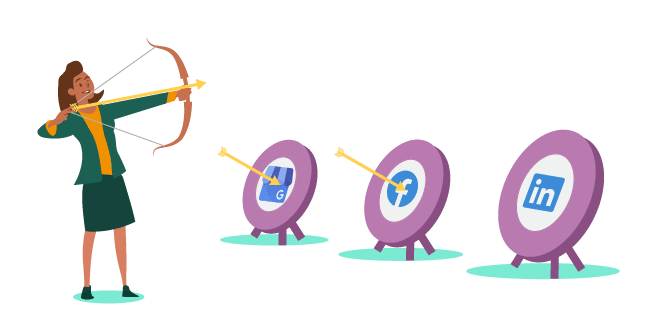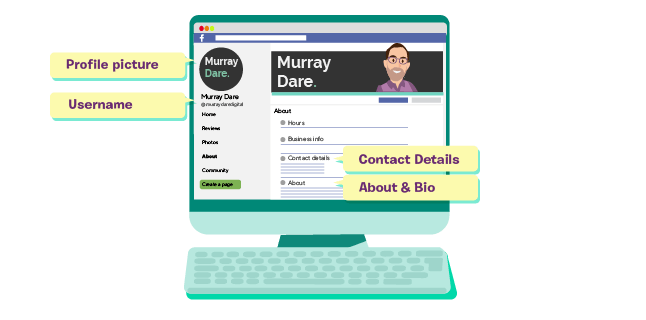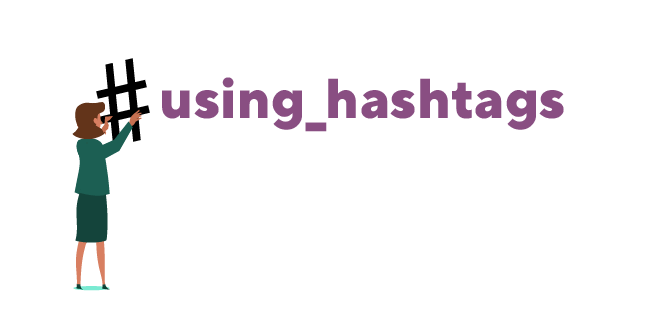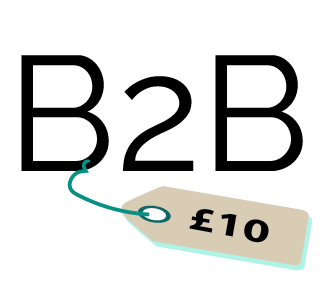When it comes to improving your brand’s visibility online, social media can have a huge impact. Whether increasing your audience size or improving your rankings within search engine results.
Social media is a huge part of your off-page SEO. And, optimising your social media should form part of any online strategy. This will ensure you put yourself in the best place to drive more leads and conversions for your business.
However, 87% of marketers use social media to promote their businesses. So, it’s more important than ever to optimise your accounts in order to stand out against your competition.
It’s not as simple as posting and letting the users come to you
Just like your website’s SEO, you need to use a targeted approach. One which ensures the content and hashtags you’re using can reach a wider audience. But one which also delivers value to their social media experience.
Why else would you expect them to follow?

In this article, I’m going to take you through five key social media optimisation tips. These tips will help you create a more effective social media strategy.
Optimising Your Social Media Accounts
Just like your website, the content on your social media pages can help make you more discoverable to searchers.
Therefore, you need to ensure your accounts are fully optimised in order to reach your target audience.
Optimising your social media accounts is very easy to do. And, you can get started with many of these processes today.
1. Your Profile
Your profile is the crux of your social media page. It will be the first thing searchers land on when they find you. It needs to be instantly recognisable, properly set up, with all the essential information a user may need.
It’s easy in the initial set up of your profile to miss vital sections.
These include:
- Profile picture: This should be your company’s logo and nothing else, unless of course you are a professional individual. In which case you probably want a professional headshot.
- Username: This should be your company’s name – it makes it easier for searchers to find you when you are using your company’s name. Where possible, keep your username the same across different platforms. This will help your audience find you across the various social media networks they’re using.
- About & Bio: Clearly describe what your company is and what it offers. Include keywords to help searchers understand your relevance to them. And, always remember to add a link back to your website to drive traffic.
- Contact Details: Ensure your contact details are up-to-date so customers can reach you when they need to. If you have a physical location with a shop or service centre, make sure to put your full address so your local audience can find you.

Take the time to fill out your profile with as much detail as possible
Facebook and other mainstream platforms give you the opportunity to input lots of detailed information about your business. It’s important that you take advantage of this.
2. Keyword Research
We know that keyword research is hugely important for our on-page optimisation. However, many forget its significance in helping your social media content become more discoverable by users.
Simply put, keyword research is all about figuring out the phrases that your target audience use to conduct their searches.
Research to understand what phrases, hashtags and search strings are relevant to your audience. Then, you can begin to incorporate them into your content and make your page more discoverable.
Add them into your bio and ‘about me’ section, or throughout your regular postings. This will increase your page’s visibility on social media search pages. It will also allow you to reach a wider audience. An audience who are interested in the things you’re talking about.
3. Focus On Your Content
Any marketer will tell you that the quote ‘content is king’ certainly rings true when it comes to marketing your brand online.
In terms of your website’s SEO, your written content is one of the most valuable tools you have at your disposal.
You can use relevant keywords and purpose-driven content to reach a wider audience and improve your conversions.
Similarly, for your social media, the content you create is vital to your page’s success. Everything you share needs to capture your target audience’s attention and engage them. This means keeping creative with everything you do.

Original vs Curated Content
There are two types of content you can share on your social media: original and curated.
Original
Original content refers to content you have made yourself for the sole purpose of posting on social media. Original content usually forms part of a campaign, as you tend to create specific pieces to target audiences in a particular way.
Any original content you create needs to be well-written or, if it’s visual, high-quality. It should be relevant to your brand, and contain a peppering of related keywords.
Curated
Curated content is content which wasn’t created by you. It can refer to content which has been shared from various web sources. It includes; user-generated content, articles, infographics, events, and other people’s text.
Make sure that curated content only makes up a small section of your social media. And, ensure anything you choose to share on your page is related to your brand in its entirety, especially since you have no control over it.
Otherwise you risk confusing your audiences, leaving them unsure about who you are and the messaging you’re trying to convey.
Creating good content is about knowing your audience
The process of publishing content on your social media is a trial-and-error process. There isn’t one single approach that works best across all of the platforms that your brand has a presence on.
Take the time to understand your audience; use the built-in analytics tools to see which posts have good engagement, and then adapt your weaker-performing posts to better suit their needs.
Imagery

As humans, we process images with more ease and at a much faster rate than text. In fact, scientists have discovered that 90% of the information transmitted to our brains is visual.
It’s hardly surprising. Just think about the last sponsored post you remember on your newsfeed. When you think of it, do you imagine something visual? Thought so.
So, you should make use of this bit of neurochemistry when building your content calendar and optimising your social media.
Studies in recent years have even shown that images are one of the most important tactics for optimising your social media content. This is because they can have the most impact on your audience.
Take advantage of this by using high-quality and engaging images in your social media posts. If you’re a relatively new company, then purchasing stock imagery may be the best move at first.
However, if you have the budget to do so, your own images and illustrations make for a much bigger impact. Your images will be authentic and reflect your brand’s personality, and you’ll be creating branded shareable content.
Whatever image you choose to share, don’t bombard it with text. Use your logo and a few snippets of text, you don’t want to overwhelm your audience.
Hashtags

Social media platforms like Twitter and Instagram encourage users to include hashtags in their posts. This is to reach people who aren’t yet following you, but who may be interested in the content you’re sharing.
You should take advantage of this, by using current trending hashtags and relating them back to your brand. You’ll be reaching a wider audience, and increasing your brand’s visibility on these platforms.
Instagram allows you to include up to 30 hashtags in your posts. So make sure you incorporate at least a few into your post. On the other hand, Twitter has no limit on hashtags – but it does have a 280 character limit.
Once you’ve got a large following, you can even try and create your own hashtags and get them trending. This is perhaps the most certified way to show your authority online.
However, as with anything on your social media, you don’t want to bombard your audience with hashtags. If they see a post with a caption that’s full of hashtags, they may think you’re spamming them. Instead, try posting your hashtags as a separate comment on your post.
4. Timing
Did you know that the time you post your content on your social media can have a huge impact on its success?
A well-timed post has the ability to increase your visibility and engagement rate. Whereas content that’s posted at the wrong time can be missed by your audience entirely.
The time you should post your content depends on two things:
i) your audience
ii) the site you’re using
Some social media platforms such as Instagram have free built-in analytics tools for brands. These helpful tools can tell you at what time of the day your followers are most active.
However, not all platforms have these features. So, use resources like Sprout Social to determine the best time to post for the highest level of engagement.
5. Regularity

How often you post on your social media can have an impact on your page’s success too. Of course, you don’t want to overwhelm people with too many posts, However, you also want to ensure you’re posting enough content to remain relevant.
The number of times you choose to share content will vary dependent on the social media network you’re using.
Chronological or relevant?
Platforms such as Twitter operate with a chronological algorithm. This means that you may need to post several times a day in order to have your content seen by your audiences.
However, platforms like Instagram and Facebook use an algorithm which connects users with content that’s most relevant to them. This means you don’t have to post multiple times a day in order for your content to reach your target audience.
Like your content, you’ll need to experiment with how many posts you should be sharing each week. Try starting with a post every other day, and then upping it to daily postings. Monitor your engagement and views during this time and you’ll get a good idea of what works best for your brand.
Summary
Your social media can do wonders for your brand’s visibility and your SEO. It can help you to build a following and increase your leads. It can also improve the click-through rates for your website.
However, it’s not as simple as sharing a few posts a week and leaving it to do it’s thing.
You need to ensure your profile and the content you’re sharing is properly optimised to reach the right people. And, build the right image for your brand.
Optimise your content
Just like your website’s SEO, you want to optimise any content you’re sharing. Do this by researching the right keywords and hashtags to use to reach your target audience. You also need to monitor your analytics and adapt content to suit your audience’s needs.
A comprehensive social media strategy takes a lot of time and regular analysis to make it a success. However, once you’ve started to build a reputation and strong following, you will maximise your chances to improve your site traffic and leads.
Hiring A Marketing Consultant To Manage Your Social Media
The process of optimising your social media accounts is relatively easy to do. However, the day-to-day management can be very time-consuming.
This is where things can become difficult. Trying to build an optimised social media presence, without having enough time to do it.
Many companies, especially start-ups, choose to outsource their social media and overall content marketing strategy to a marketing consultant. I have a wealth of experience, and a team of professionals who can manage your day-to-day social media.
If this sounds like something you may be interested in, feel free to get in touch for an obligation-free chat. I’d be happy to talk through some examples of my previous work. Or discuss how my team and I could help you to improve your visibility online.







